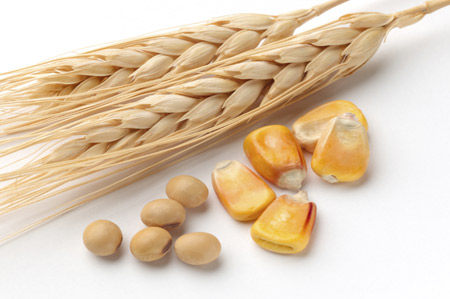 (Agrimoney) – US farm officials cautioned over the dent to world trade prospects from Chinese economic downturn as they cut expectations for the country’s crop imports, slashing the forecast for sorghum buy-ins by nearly 80%.
(Agrimoney) – US farm officials cautioned over the dent to world trade prospects from Chinese economic downturn as they cut expectations for the country’s crop imports, slashing the forecast for sorghum buy-ins by nearly 80%.
The US Department of Agriculture foresaw a “particularly notable slowdown” in Chinese economic growth, “from historical highs near 10% to an average of 5.3% per year over the next decade” – a deceleration with implications for commodity-exporting countries.
“China’s demand for commodities and other intermediate inputs has been a significant source of… income” for many exporting nations, the USDA said.
“Economic growth in other developing countries in Asia and elsewhere is expected to be negatively affected.”
Feed grain shake-up
In crop markets, the slowdown will be evident in Chinese import growth which looks like proving far less buoyant than had been expected, with the USDA cutting expectations for expansion in purchases of the likes of corn, cotton and soybeans.
For barley and sorghum, the USDA, noting also reforms which are focusing feed demand on domestic corn supplies, ditched expectations of growth at all in Chinese imports, although seeing the country staying as the top importer of malting barley
“As policy changes reduce large domestic corn stocks and lower domestic corn prices, China is expected to reduce feed barley imports,” the USDA said in a report which cut by one-third to 3.4m tonnes the forecast for the country’s purchases of the grain in 2024-25.
In sorghum, the estimate for imports in 2024-25 was slashed by 79% to 1.2m tonnes, with the USDA foreseeing a retreat in the “high” Chinese corn prices that have driven the country to importing alternative feedstuffs, such as barley and sorghum, which have enjoyed a more lenient import regime.
Slower growth
However, even for corn itself, the USDA cut its forecast for Chinese imports as the country’s revised subsidy regime “aligns its high domestic prices with lower world prices”.
The estimate for corn buy-ins in 2024-25 was cut to 4.1m tonnes, from an estimate of 7.2m tonnes made in last year’s USDA so-called “baseline” report giving long-term crop forecasts.
And for wheat, the Chinese import estimate in 2024-25 was cut to 1.4m tonnes from 3.5m tonnes.
The USDA forecast for Chinese soybean purchases in nine years’ time was trimmed by 800,000 tonnes to 106.5m tonnes, although this would still represent a sharp increase from the 80.5m tonnes the country is expected to buy this season.
“China remains the predominant importer of soybeans, which are crushed domestically in order to meet robust domestic demand for both vegetable oil and oilseed meals for feed,” the USDA said.
Meanwhile, the estimate for Chinese cotton imports in 2024-25 was slashed by 8.3m bales to 15.2m bales, reflecting farm subsidy changes in this sector too.
Upgraded import prospects
Crop merchants seeking import markets may be better heading to Mexico, for which prospects for coarse grain imports have improved, by 600,000 tonnes to 15.9m tonnes on the 2024-25 horizon, and up from 11.8m tonnes expected for this season.
The forecast for expansion “reflects increased meat consumption and domestic production”, the USDA said, terming Mexico a “key growth market” for the sector, and one poised to regain from China top rank in sorghum imports.
Prospects for Egyptian corn imports have also increased, with purchases set to hit 11.2m tonnes in nine years’ time, 1.5m tonnes more than previously forecast.
Egypt looks like importing more wheat too than previously thought – 12.4m tonnes in 2024-25, an upgrade of 900,000 tonnes, with Indonesia a promising market too.
“Egypt and Indonesia remain the world’s leading wheat importers” over the forecast period, the USDA said.
“Indonesian imports grow rapidly as increased consumption of non-traditional instant noodles, bread, cakes, and cookies continues.”




